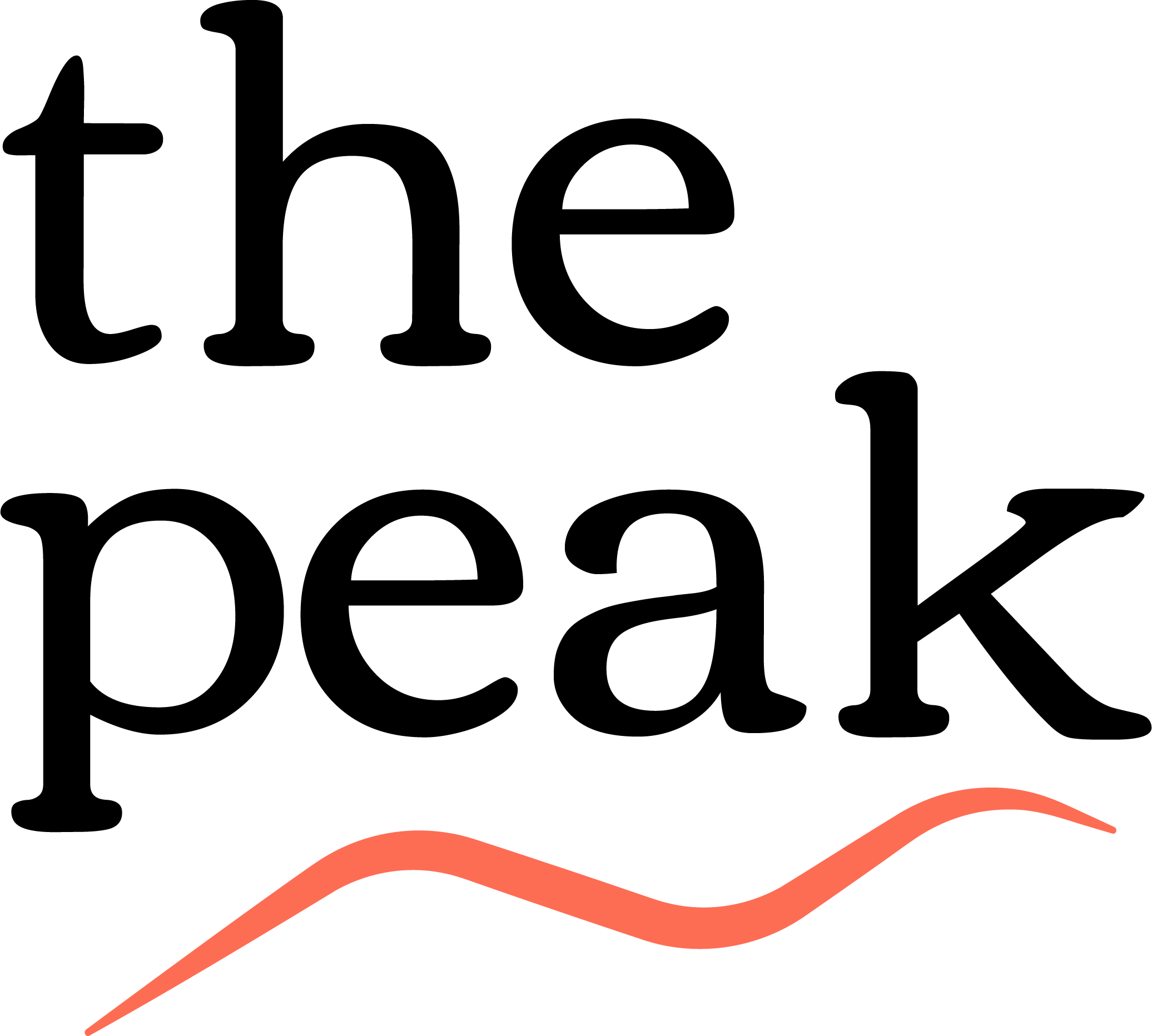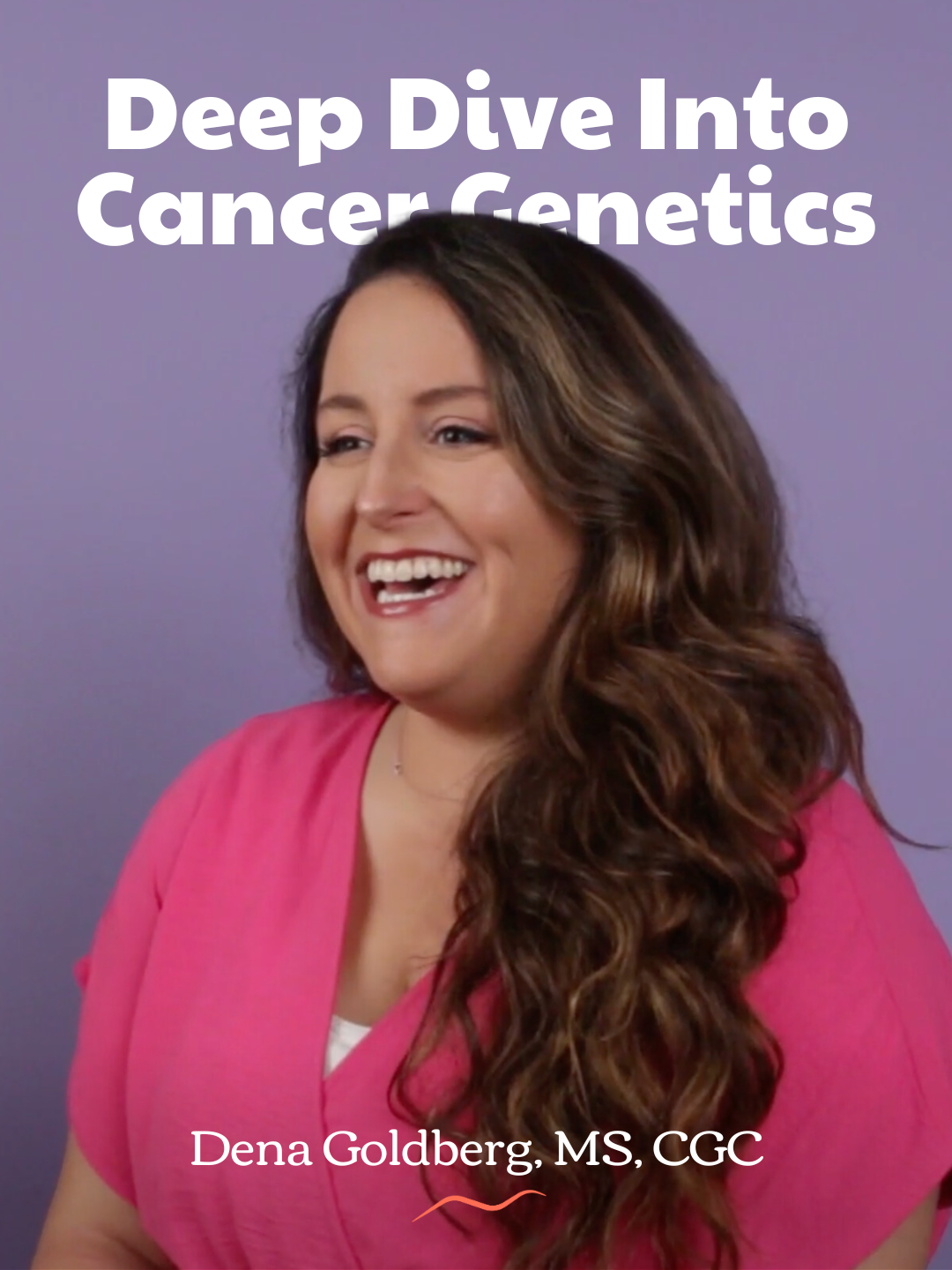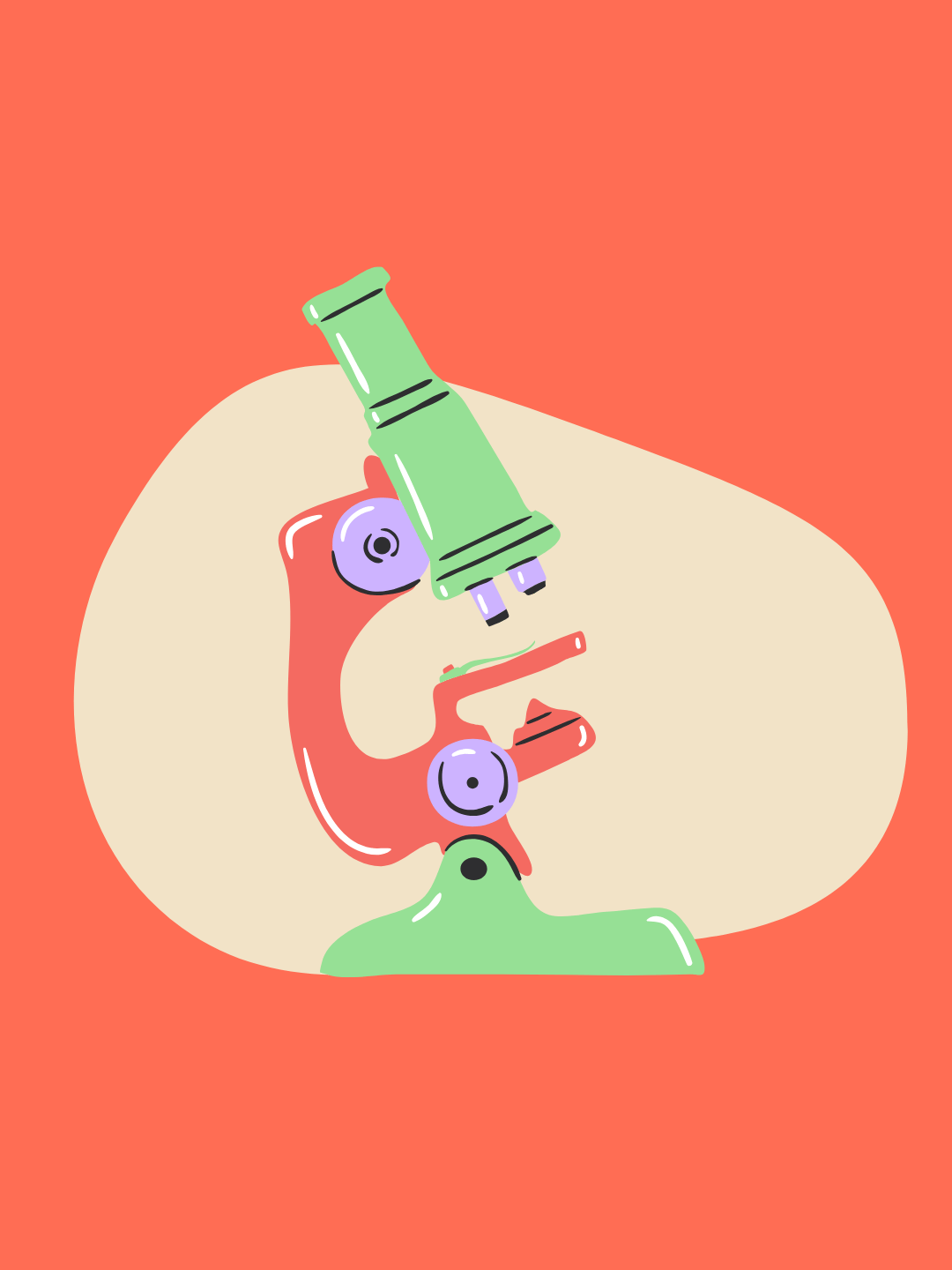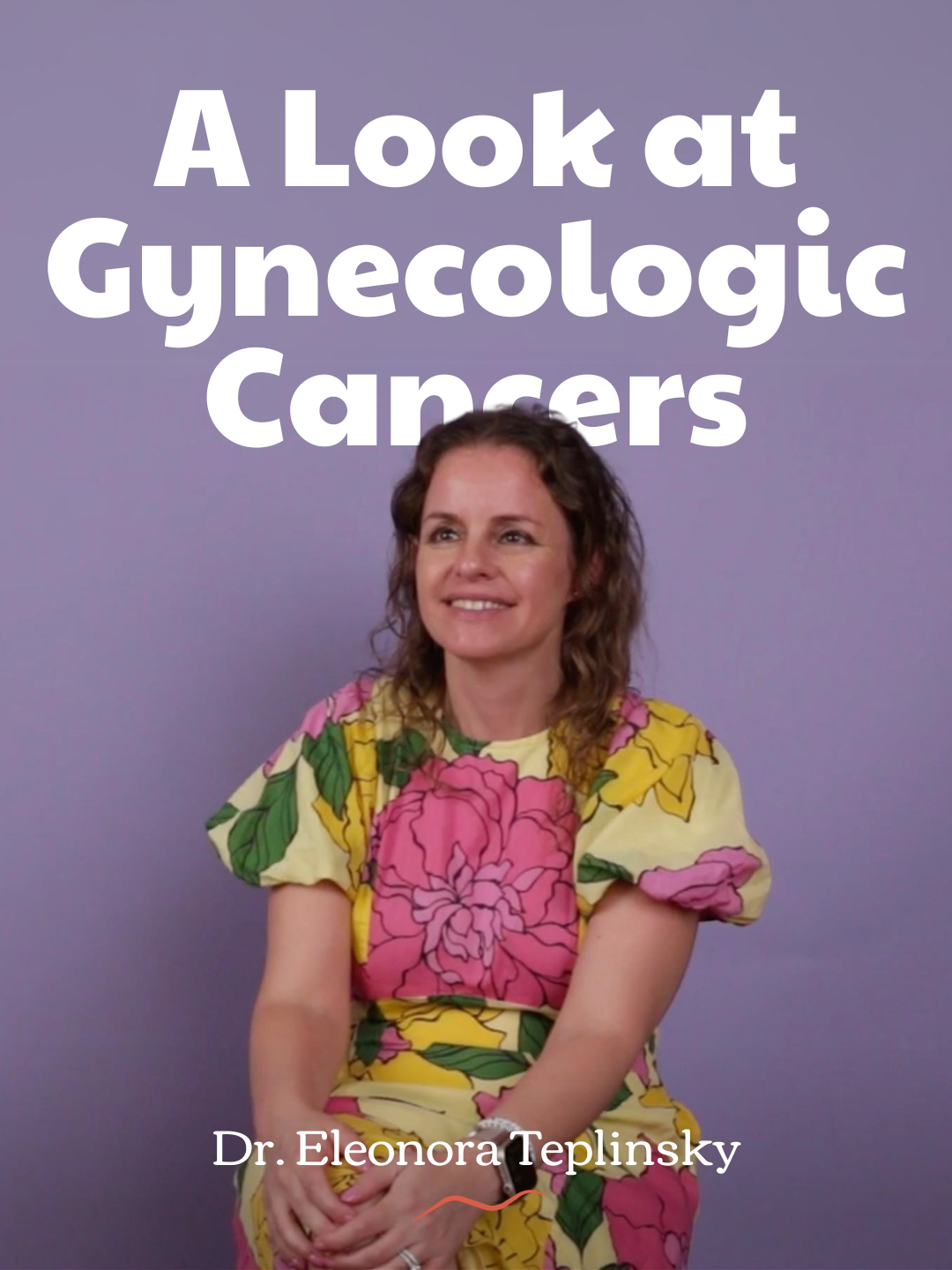When it comes to our health, knowledge is power.
And what can be more powerful than taking action to reduce the risk of diseases that our genetic make-up may predispose us to? Enter: Genetic counseling and germline genetic testing.
Dena Goldberg MS, LCGC is a board-certified genetic counselor with a background in hereditary cancer syndrome research. Before opening her private practice, Malibu Genetics, Goldberg was a cancer genetic counselor at the UCSF Cancer Genetics and Prevention program. She is also a content creator passionate about health science education and empowering patients with actionable information about genetics.
She spoke with The Peak about the unique role genetic counselors play, why it’s important to look beyond BRCA for breast and gynecologic cancer prevention, and how to keep a critical eye out for the health (mis-)information floating across social media.
This interview has been edited for clarity and length.
THE PEAK: What is genetic testing important for those impacted by cancer?
Dena Goldberg: There are a lot of uses for genetic testing in general but when we talk about the cancer setting, there are different types of genetic testing.
The type that I specialize in is called germline genetic testing, which is looking at the genetic code that someone's born with, trying to determine if they have an increased risk for developing a tumor or a cancer. We can do this by testing blood or saliva and the results do not change whether you test at age 1 or 100.
In contrast, tumor sequencing focuses on the genetic changes that occur within a tumor itself which are not present in your original germline code. This test is used to determine the most effective treatment for your specific tumor. It’s important to note that some of these tumor tests will not report a genetic change if it is found in the germline because they are only looking at new changes in the tumor itself. If you have had genetic testing on your tumor only, you have not had testing for a hereditary cancer syndrome. It’s crucial that these results are interpreted by someone with expertise in cancer genetics.
TP: Who is genetic testing for?
DG: Medical organizations have guidelines about [who can access genetic testing, like] people who have family history, people who are diagnosed at a young age, but we're getting to the point where everyone with cancer really can benefit from some sort of genetic testing. I think we are also moving towards population-based testing, where everyone's just going to get it eventually.
But for now, genetic testing may benefit people who are diagnosed young, when there is any family history of cancer, or if someone doesn't know their family history and if they're diagnosed with a rare type of cancer.
What medical organizations set guidelines for genetic testing access? Which ones should someone look up if their provider denies them testing or says they are ineligible?
DG: The organization many of us use is the National Comprehensive Cancer Network (NCCN) which is an alliance of 33 cancer centers in the United States, most of which are designated by the National Cancer Institute as comprehensive cancer centers. Its primary role is to develop and disseminate evidence-based guidelines for cancer care, which are widely used by healthcare professionals to ensure that patients receive the best and most up-to-date possible treatment and care.
The NCCN's guidelines cover a broad range of topics, including cancer prevention, genetic testing guidelines, diagnosis, treatment, and supportive care. These guidelines are regularly updated to reflect the latest scientific evidence and are considered a gold standard in oncology care. The organization also provides resources and information for patients and families, helping them make informed decisions about their treatment options.
Some other organizations include the American Society of Breast Surgeons (ASBrS), American Society of Clinical Oncology (ASCO), American College of Medical Genetics and Genomics (ACMG), United States Preventive Services Task Force (USPSTF), and National Society of Genetic Counselors (NSGC).
If your provider denies testing or says you are ineligible, you can look up the specific guidelines from these organizations to see if you meet their criteria. You can also seek a second opinion from a genetic counselor or another healthcare provider who specializes in cancer genetics.
TP: How can you find out what your genetic testing results mean?
DG: As a board certified genetic counselor, I am specifically trained in interpreting the genetic test results for patients. That partly involves science communication and meeting the patient where they are, making sure that they are able to take that information and really use it and create an action plan.
I recommend that anyone doing genetic testing does it through a genetic counselor or someone with genetic counseling experience so that they are not just being tested and then thrown to the wolves.
I also recommend anyone who has had a genetic test and doesn't understand their results or anyone who is considering having a genetic test meet with someone like me, a genetic counselor. We are all over and insurance typically covers our services. If they don't, there's ways to get financial aid or cash pay options.
Just like any other specialist, we're there for you, specifically to help with your genetic testing needs.
TP: Can you only see a genetic counselor with the intention to be tested?
DG: Not everyone who comes in for genetic counseling walks out with a genetic test. Sometimes we find that it may not be the right time in someone's life because of things that are going on, if they are not mentally or emotionally ready, or maybe they want to wait to know the information or buy life insurance first.
Sometimes people just want to talk about their options and what it would mean if they were positive or negative before they undergo a test. So genetic counseling is separate from genetic testing, but you can absolutely see a genetic counselor without getting genetic testing and it is all up to you. It's all about choice—whatever you feel is right for you as long as you are given all the information to make that decision for yourself.
TP: How can someone find a genetic counselor?
Dena: If you are someone who's interested in seeing a genetic counselor like me, you can go to findageneticcounselor.com to find one locally. We work at most academic centers and many community clinics. There's also telemedicine genetic counseling and laboratories will also sometimes provide free genetic counseling.
I do recommend if you want more time with a genetic counselor to try to see one in person or see one through telemedicine that allows you to have a longer time to really connect with them and talk to them about your results or about your interest in genetic testing.
TP: Why do you feel so strongly that anyone who wants genetic testing should have access to it?
You are responsible for your own body. You are the only one who is really looking out for yourself.
I have had patients who didn't meet [genetic testing] criteria or guidelines for many different reasons: sometimes they don't know their family history, sometimes the family history is there, but not enough to qualify, and sometimes they're just curious or are anxious and want to know.
I think it's a right for us to know information about our bodies and the technology [to access that information] exists. If somebody wants it, I think they should be able to access it in a way that is ethical and appropriate for them.
I have seen patients that didn't qualify who ended up having a disease-causing variation but would never have known that information if they didn’t self-pay or hadn't gotten financial aid or hadn't pushed for it.
Our guidelines aren't perfect and I think everyone should have the right to their information.
TP: What can someone do if they are told they don’t qualify for genetic testing?
DG: I have definitely seen patients who did qualify, but whose physicians or care team told them they didn't. You can ask more than one provider and look up guidelines.
If you truly don't qualify, but you would like to have genetic testing, the cash pay rate is typically no more than $250 [in the United States], so I would recommend doing it through a genetic counselor or medical professional and asking about the cash pay rate or financial aid.
TP: When we think about genetic variants related to breast cancer, the BRCA genes are often top of mind. Are there others we should know about?
DG: For breast cancer specifically, we know BRCA1 and 2 are these big heavy hitters but there are also a handful of other genes that will also confer a very high risk of cancer, and a whole handful of genes that fall into the high and moderate risk categories.
What other genes confer a very high or high risk of breast cancer?
DG: Some examples of genes aside from BRCA1 and BRCA2 that confer a high risk, meaning more than 40 percent lifetime risk, for breast cancer include TP53, PTEN, CDH1 and PALB2.
Some genes associated with a moderate risk, so between 20 to 40% lifetime risk, include CHEK2, ATM, RAD51C, RAD51D, STK11, BARD1 and NF1.
There are more genes being added to this list and we are still learning about breast cancer risk in some of the genes we once associated only with other cancers, so I personally think it is important to have a larger panel so you have more information.
It's the same price to be tested for one gene or a hundred genes because of the technology that's used. So it makes sense to be tested for a bigger panel. If you haven't been tested for more than BRCA, you should definitely ask, especially if you tested negative and you have a strong family history.
TP: What variants or syndromes should we know about related to gynecologic cancers?
DG: Gynecologic cancers, specifically ovarian or uterine cancers, can be associated with several different syndromes. The most common is something called Lynch syndrome, which is actually the most common hereditary cancer syndrome.
People don't talk about it a lot, but it confers a higher risk for gynecologic cancer, colon cancer, and other GI cancers, among a few other things. Knowing that information is super important because there is a lot of prevention or risk reduction that we can do for Lynch cancers. But most people who have Lynch syndrome don't know they have it, so there's a lot of people walking around with it or a lot of people who were only tested for BRCA.
It's super important to make sure that you were tested for Lynch syndrome with a large panel, looking at all of the genes associated with gynecologic cancers.
For ovarian cancer, this would include ATM, BRCA1, BRCA2, BRIP1, Lynch syndrome, (MLH1, MSH2, MSH6, PMS2 & EPCAM), PALB2, RAD51C, RAD51D and TP53 at the very minimum.
For endometrial/uterine cancers, this would include the Lynch syndrome genes (MLH1, MSH2, MSH6, PMS2 & EPCAM), PTEN, FH, TP53 and others depending on the type of tumor.
TP: What if someone has already had genetic testing but was only tested for BRCA variants?
DG: If you've already been tested, you can get an updated panel. Typically we can get it covered by insurance pretty easily, depending on what lab was used and how many genes were tested. It can also be done with blood or saliva, so you can even do it from the comfort of your own home by sending in your saliva sample.
TP: As someone passionate about sharing health information on social media, what do you recommend people look out for to make sure the information they’re reading and sharing is legit?
DG: It's really important, first of all, not to share information if it's not from a credible source because then you are contributing to the misinformation sharing.
Making sure the information comes from a credible source is really important. How do we do that? A credible source is somebody that is educated, typically has gone to school in this area for many years, has the relevant degrees, and practices or researches in the area. They are literally living in it. Those are the people who are going to be the most knowledgeable about anything that has to do with cancer.
There are lots of different people that could fall into that category, but there are plenty of people on social media who don't have credentials, who haven't gone to school in that specialty, or who maybe got a random certificate. Those people are not going to have the information or even the ability to translate science in an accurate way to share that information with the general public.
It's important to see their credentials, their degrees, their personal career experience, their area of research, what they do, and understand why they're talking to you. If they're trying to sell you something, chances are it's probably not super credible.
Dena Goldberg MS, LGCC sees patients in her private practice at Malibu Genetics where she provides services ranging from Cancer Genetic Counseling, General Disease Prevention, Direct-To-Consumer Genetic Test Review, and more.







